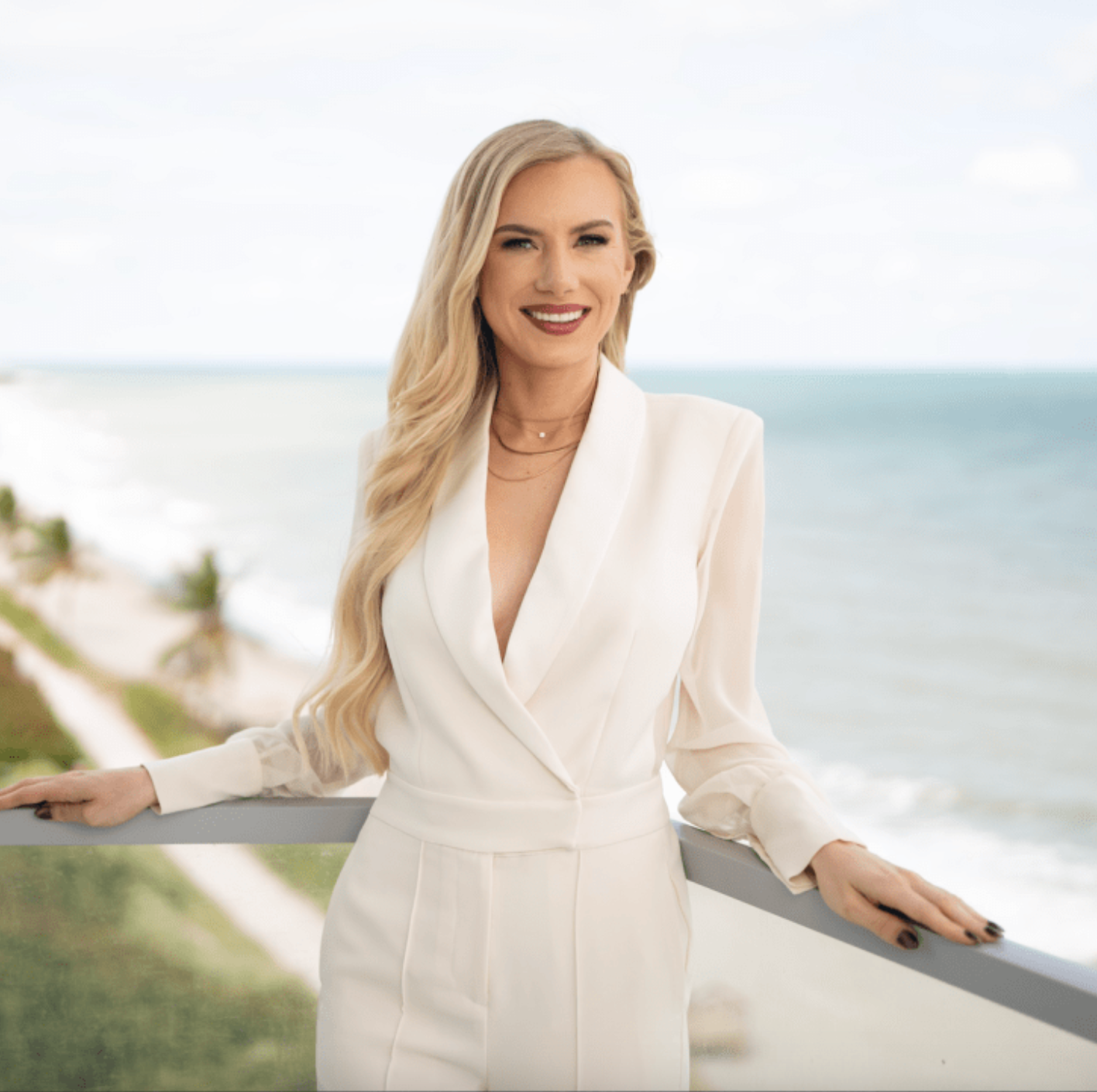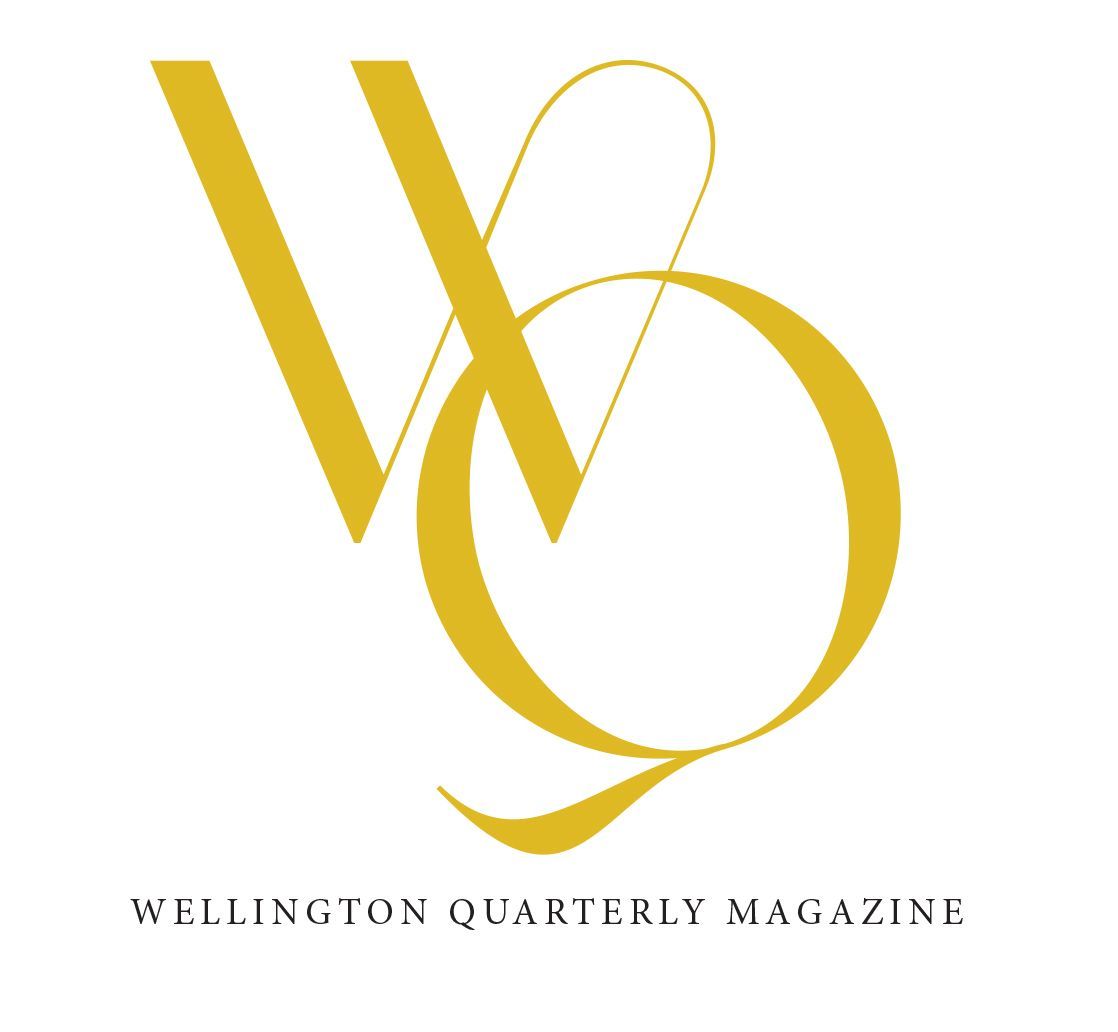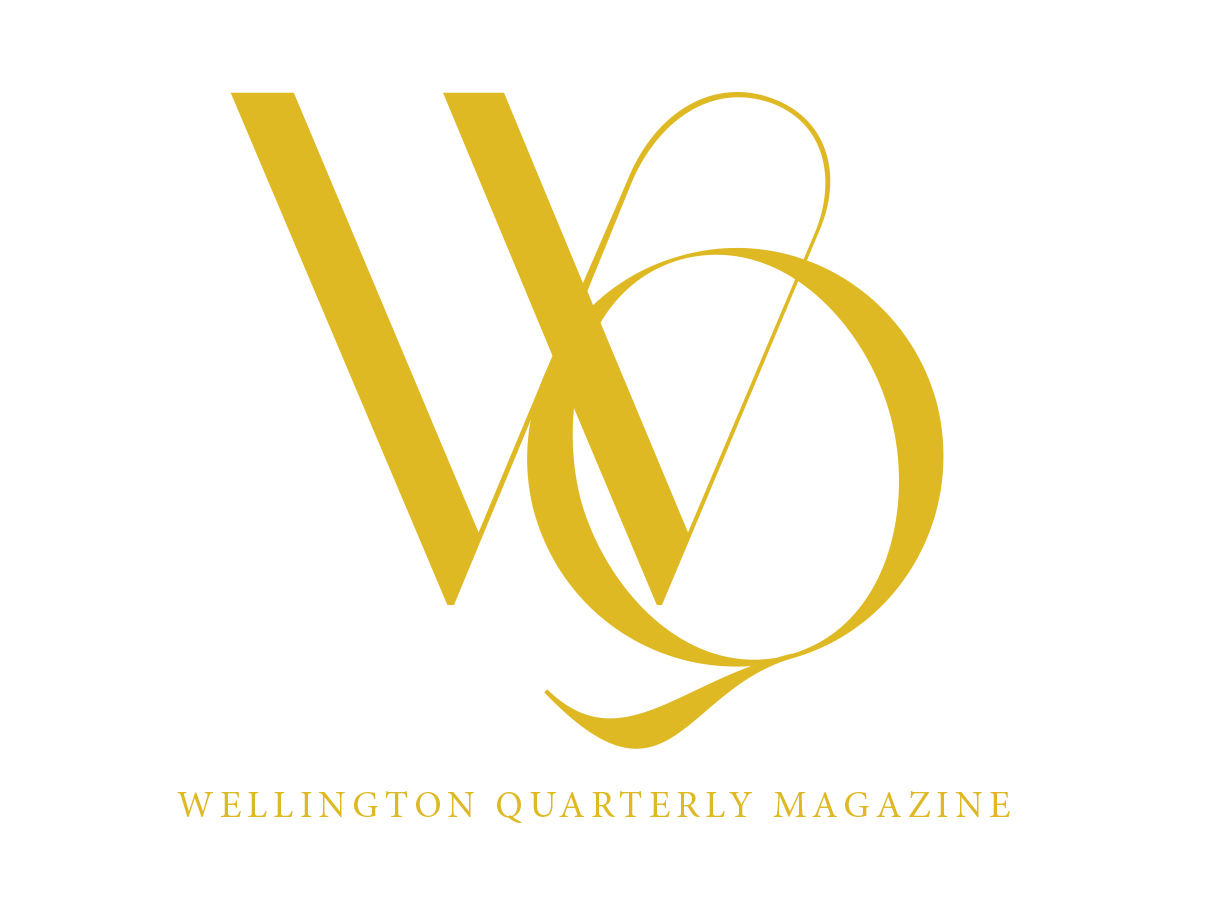Meet The Rider
Live Beautifully
Welcome to our exclusive Q&A series, “ Meet the Rider,” hosted by Jenna Steffens.

Jenna Steffens, a prominent figure in the real estate realm, renowned for her expertise in navigating the Palm Beach waterfront and Wellington equestrian markets, bridging the gap from "Beach to Barn™". With a rich background in representing luxury developments and a passion for the equestrian world, Jenna brings a unique perspective to the table. Join us as we uncover her journey from the Midwest to the Sunshine State and explore the fascinating intersection of real estate and equestrian lifestyle. Plus, get an insider's look into Jenna's captivating 'Meet the Rider' series, where she unravels the stories of remarkable equestrian athletes, including her recent conversation with the globe-trotting show jumping sensation Nicolette Hirt. For more on her equestrian series and amazing properties, visit @jennasteffens
J: What initially drew you to horses?
N: I'm not from a horse family, and my dad took my sister and me to a stable down the street
from where we lived at the time in California. My sister & I started feeding carrots to the horses on the weekends, and we became obsessed. It was a very basic level barn where I started taking Western lessons.
J: I actually grew up the same way, too, where I started at a very basic level barn.
And then, as your skill grows and want to compete at a higher level, you're always having to find that next trainer to bring you to the next level.
N: Yes, exactly. And it was nice because we always had to tack up our own horses and put our horses in the trailer and that sort of thing, and I think that was really important.
I started the sport because I loved the horses. It wasn't that I loved the sport, and then the horse love came later. I think that's important for the sport now and then.
I think it's really good for kids, too, especially at that age, to learn the horsemanship side, you know, how to tack up a horse, you know, feeling their hoofs, feeling if there are any injuries, etc.
J: And it's responsibility. The thing my parents loved about it was you had to get up at a certain time to go to the barn & get ready for your lessons. It really kept us on the straight narrow. My parents always used to say when people would say, "I can't believe how much money you spend with your kids to ride horses" And she's like, you know what?
It's a lot cheaper than rehab or kids getting into something they shouldn't be because
We had to wake up early, drive an hour to the barn and clean stalls.
N: It's time-consuming because there's not a lot of time to do those things when you're in school while you're riding and then I also find we ended up owning an equestrian facility that we still have in California. We bought it in late 2010 or 2011. So now, 14 years ago, a lot of our friends rode at our barn, and it has 70 ish stalls there. So we still have that place, but a lot of our childhood friends are now lifetime friends that come here from riding and growing up together and doing lessons.
J: What part of California did you grow up in?
N: Northern California. Yeah, the Bay Area. Our barn was about 45 minutes east of San Francisco. And I grew up in Alamo, California, so that's like 30 minutes.
J: How did you end up in Wellington?
N: So, when I was based in California, I'd always do the horse park, Desert horse park in the winters, and then in the summers, around when I was 16 or 17, I started going to Europe for the summers. And I was a bit of a working student for a sales barn. My parents were pretty against me going, but I thought that my mom was very supportive. My dad was a little bit like, okay, this is a lot. And I lived at the barn with my own horses when I was there and kind
of took whatever rides I could get. But it was the best education I could have gotten at that time. So when I was going back and forth from Europe to California, I started staying longer and longer in Europe. But at the time, the desert horsebark didn't have the renovation it has now. My family was starting to move out of the West Coast, so it didn't make sense for me to go back to California. So I was talking about doing Spain or the UAE series, but then my parents said, come check out Florida. So I came during the summer and saw, and I was like, this place is pretty unreal. So we were like, okay, let's rent the farm. So we rented a farm starting January through March, and then I was gonna move back to the Netherlands after.
That's when COVID happened. So the show shut down mid-March. And, you know, at that point, my dad thought the whole world was going to end. So he locked myself and my sister in our house in Wellington that we rented.That was a crazy time.
J: I remember that season, I was getting calls from all my clients trying to extend their rental because they didn't want to go back to New York City or California, which was basically shut down. Florida was kind of the place to be.
N: It was funny, but because I stayed in Florida, no one was really traveling to Europe at that point. So it was then I decided to stay on the East Coast.
J: Would you say being in Wellington surrounded the top riders and trainers, has helped you with your own riding career?
N: Absolutely. I strongly believe in who you surround yourself with & what you're thinking and watching. When you’re surrounded by the best in the world, you are bound to improve just by watching. And I try to be a sponge, especially since I am around as much talent as we are. When I was growing up and I was doing California and Europe, I noticed even at the national shows in Germany, I was surrounded by such fantastic riders that I could pick up on little things. My riding did improve so much more just by being surrounded by the best.
J: Is there something that a trainer or a mentor has said to you that really stuck with you?
N: The hypnosis coach I work with, she says, and I guess it's a little bit of a mantra that I believe at this point, but every time I go in the ring, I tell myself I'm doing my personal best.
So it's not about how anyone else does; it's not about what the course is or what course I'm on. It's just that I'm going to go in there and give my personal best every time.
And another one is that in this world, it feels a little bit like a fishbowl.
Everyone's always watching, and everyone's always tuning into the class. I find that Wellington brings a different amount of pressure sometimes. And I think a big piece of advice I was given was that at the end of the day, everyone only pays attention to what they did and what their round was. No one really cares about how you did, you know? So, instead of worrying about what other people think, "Oh, did someone see that?” It's really about you going in the ring & assessing how you did, and if you made a mistake, learn from it, and if you did great, then take that victory.
J: Was it hard for you at the beginning of hypnotherapy or did you naturally fall into it?
N: A couple of seasons ago, I had an incident with my horse that made me nervous. I am very in tune with my horse, so anything that goes wrong often makes me feel bad for the horse.
I can go down mental rabbit holes that aren't conducive to my training, which is why I started to work with my hypnotherapist. To answer your question, I never found it difficult. I am a big sleeper. So, as far as the focus goes, it was very easy for me. But I think the whole idea of training your brain is having someone who is a guide for things, like when I walk the course before my round. One of her biggest points is: "Don't say, I'm not going to pull on the reins here, right? Say, I'm going to ride with a positive rhythm here." So, changing your wording and mental framing has been huge for me. Always think & say the outcome you want to have. Having the belief that whatever happens, it's gonna be fine, believing in my program & reading what my horses need. As a young rider, it is easy to doubt yourself, doubt your program, doubt your horses. It's easy to go down that hole. It's important to train your brain and realize the little things that you can do that are so powerful. Don't say what you're not going to do, say what you're going to do.
J: What are some other tricks you implement before your rounds?
N:I never watch more than one round because if someone makes a mistake while I'm watching, I'm most likely going to repeat that mistake. Instead, when you walk the course, you have your plan of visualizing jumping a clear round. The horses are going to feed off of that energy that you have, and if you go in there with as much confidence as you can, that will translate to your horse in some way. And it's important to be surrounded by a team that knows you, especially for me, mentally, that's huge. They know how to handle me. Sometimes, if the warm-up doesn't go great, you need a little bit of a confidence builder. We all feed off of each other & the more relaxed I am, the better I ride.
J: Horses can sense tension in the rider, and instead of feeling relaxed, they become more alert and more apt to fight that tension.
N: That's the biggest thing with show jumping in particular. The rider has to learn, to perform in a relaxed way. That's half the battle.
J: I always ask show jumpers this because I always wondered: when you are in, say, a Saturday night class and a rail falls & you hear the crowd sigh, does that get into your head mentally? Or do you not even hear it?
N: Everyone's a little bit different. For me, I get so zoned in. Especially in a big class like Saturday night, I don't really hear much. I call it having my blinkers on. I don't really notice what's going on around me. I'm so focused on what I'm doing that as soon as I'm done, I hear it and notice it all. It's funny, I've had people come, asking if I hear them cheering. I never do. I'm fully in my zone.
J: Let's talk about obstacles. Have you ever gone through something that you weren't sure you could overcome?
N: I guess an obstacle that I wouldn’t so much call an obstacle is more a learning experience than seeing the business side of the equestrian world. When we bought the property in
In March, I was given an actual address to start a business. I noticed that it's reputation-based, and building that reputation and having people believe in you and your program takes time. Trust has to be earned in the equestrian industry. It was a step back for me in Wellington because, in California, I already had my reputation. And of course, there are sports struggles that everyone has. You have the big day that doesn't turn out. I've definitely had a few of those. You also have those horses that test your skills, and that one for me is Shakti. He was always a bit tricky and very spooky.
Sometimes, on those big days, we've jumped clear in a five-star grand prix, but I couldn't get him near the last fence. And that's heartbreaking, and that's been a lot to overcome. He's a horse of a lifetime, hands down, and he has done so many amazing things for me, but it has been a huge journey figuring him out. I've definitely had the letdowns of the sport that everyone has. So I'd say as far as overcoming them for me, it's important to shift my mental focus & turn to your team for support. My boyfriend jokes, "I'll give you five minutes of full self-pity. And you can say how horrible it Is, how you hate your life. And everything you want to say for Five minutes." We set a timer, and then he's like, time's up! Time to move on. And it works; when I was younger, no one wanted to be around me because if I had a bad round, I would I'd be a nightmare.
My mom told me one day,"Everyone loves you, but when you're so difficult to be around because you're so mad that nobody wants to be around you.
If you want this to be your life, you have to sort that out. I really took it to heart. Okay, you know what? You're right. So I made it my mission to. Because, you know, I don't think that's enjoyable. Sports are ups and downs. there's no sport in the world where It's only winning.
It's only success. You know, you have to take the Good with the bad and learn from the
bads and find the silver lining.
J: Even the top riders in the biggest shows get rails down. It's been humbling for me to watch and reflect on that. Those things happen to literally everybody. And so I think that's something that riders can think about, too, in those moments when it's happening.
There's nobody that always jumps clear.
N: And social media only highlights the high moments. You only see the great side of things. You only see, oh, this person jumped clear in this. This person won this, but everyone had to struggle a lot. There's no one in the riding world that only has easy days. And I think it's important to be humble. Take your wins, and take your losses in stride. You can't let your losses weigh on you too much because the good thing about the sport is that we get it jumped a lot. So you'll get your two minutes in the ring every week. One of my favorite quotes is "The best riders have amnesia." And I think that your brain can really play tricks on you and make patterns out of things. It's just about taking every jump, one jump at a time and taking it one day at a time. And each day is its own day. It doesn’t affect the next day.
J: I think people get in their head and think they're the only ones having these struggles, and that's absolutely not true. We all go through our own mental struggles every day.
But Instagram is such a highlight reel that you don't see the behind-the-scenes of people's lives. What does riding mean to you?
N: Well. I was a very stubborn kid. Probably a bit of a stubborn adult. I have always said since I was ten that I would do this for the rest of my life. I think my parents were like, okay, horse-crazy young girl, whatever. I never veered from it. It was just something I believed
that I was meant to do. I love it. Beyond the sport, I love the sport, the thrills, and overcoming battles and young horses. I love developing horses. But I love being around the horses daily; it's so special. Even when you're having a bad day, you go to hop on them, and you're mad at them. They are like, "What did I do?"You know? They're just really cool co-workers. Riding is my passion. It's my life. It's my livelihood. It's really all I know. And I think it's a really cool sport. My dad is big in sports and always has been. And he always said that riding is the only sport he's ever known that connects a 60-something-year-old with a 15-year-old. They can talk on the same terms about a sport they're both passionate about worldwide. I think there are so many people who are so passionate about horses because, at the end of the day, they're just such giving animals. They will literally do anything you ask them to do, and selflessly, they ask for nothing, you know? Riding means so much to me, but really being around horses and having them in my life is everything to me. I couldn't imagine myself without them.

